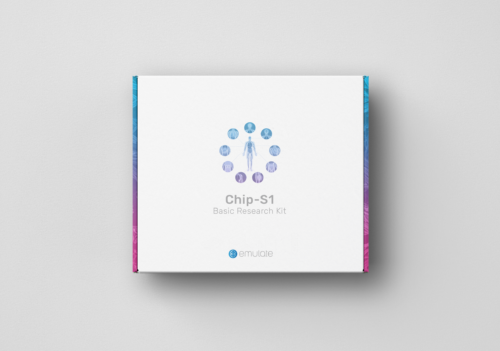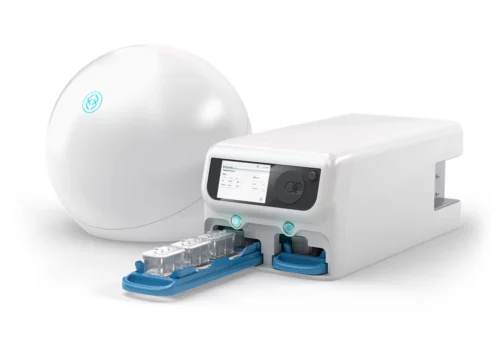Organ Model: Intestine
Application: ADME
Abstract: The human intestinal epithelial barrier is shaped by various biological and biomechanical influences such as growth factor gradients and the flow of intestinal contents. Exposure to these cues in vitro impacts the cell type composition and function of adult stem cell (ASC)-derived intestinal epithelial cells, but their effect on human induced pluripotent stem cell (hiPSC)-derived cells is largely unexplored. Here, we characterize and compare the cellular composition and gene expression profiles of hiPSC-derived intestinal epithelial cells exposed to various medium compositions and cultured as organoids, in Transwell and in microfluidic intestine-on-chip systems. We demonstrate that inhibition and activation of the WNT, BMP, NOTCH and MAPK pathways regulates the presence of dividing, absorptive and secretory epithelial lineages within these systems, as has been described for ASC-based systems. Upon differentiation, intestinal epithelial organoids and monolayers in Transwell systems expressed genes involved in important intestinal functions, including digestive enzymes, nutrient transporters and members of the Cytochrome P450 family implicated in drug metabolism. However, the dynamic microenvironment of the intestine-on-chip system induced the strongest upregulation of these genes, with an expression profile that suggests a more mature developmental state. Overall, these results underscore the value of hiPSC-derived intestinal epithelial cells for modeling important functions of the human intestinal epithelial barrier and facilitates the selection of relevant culture conditions for specific applications.



